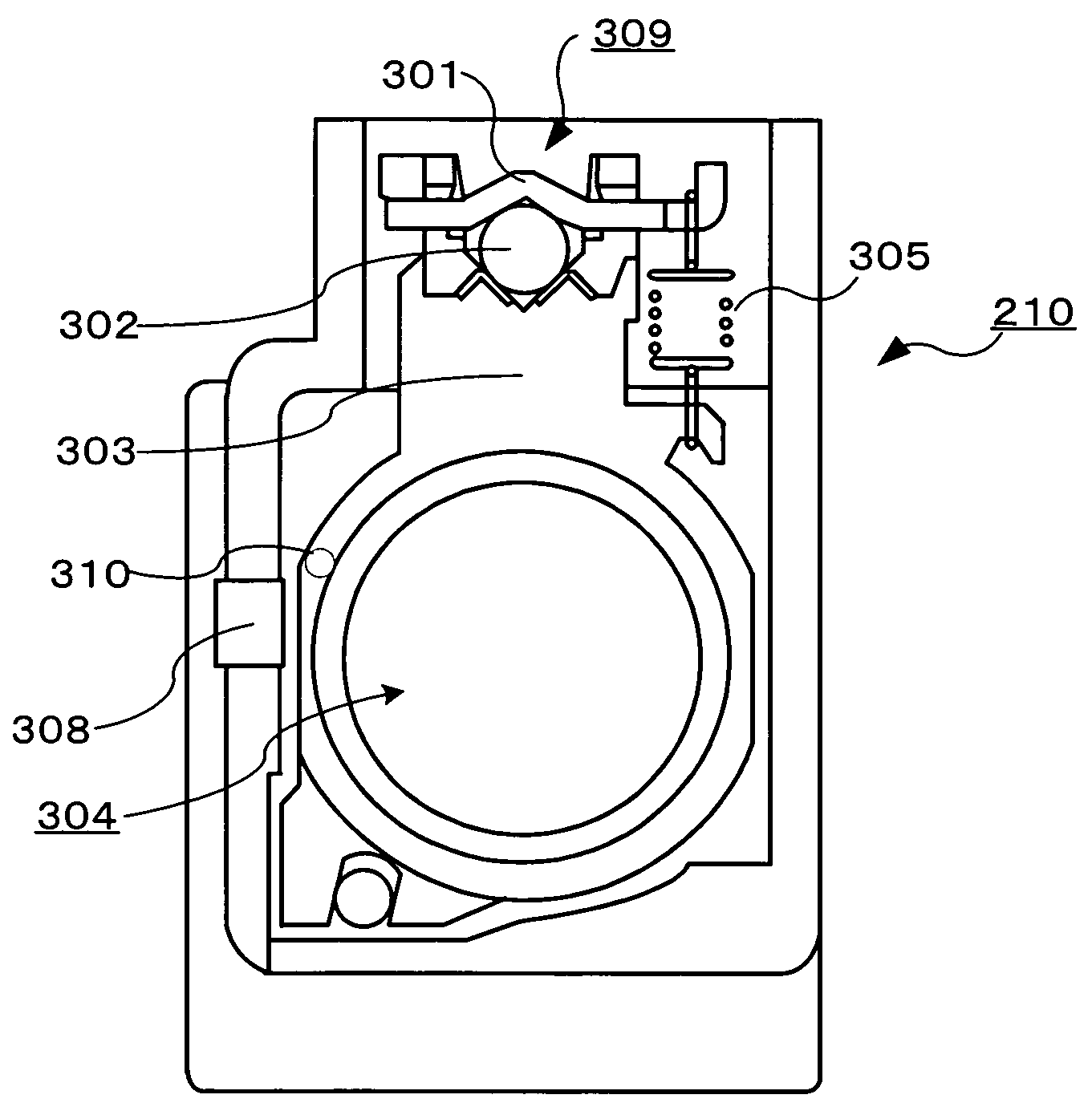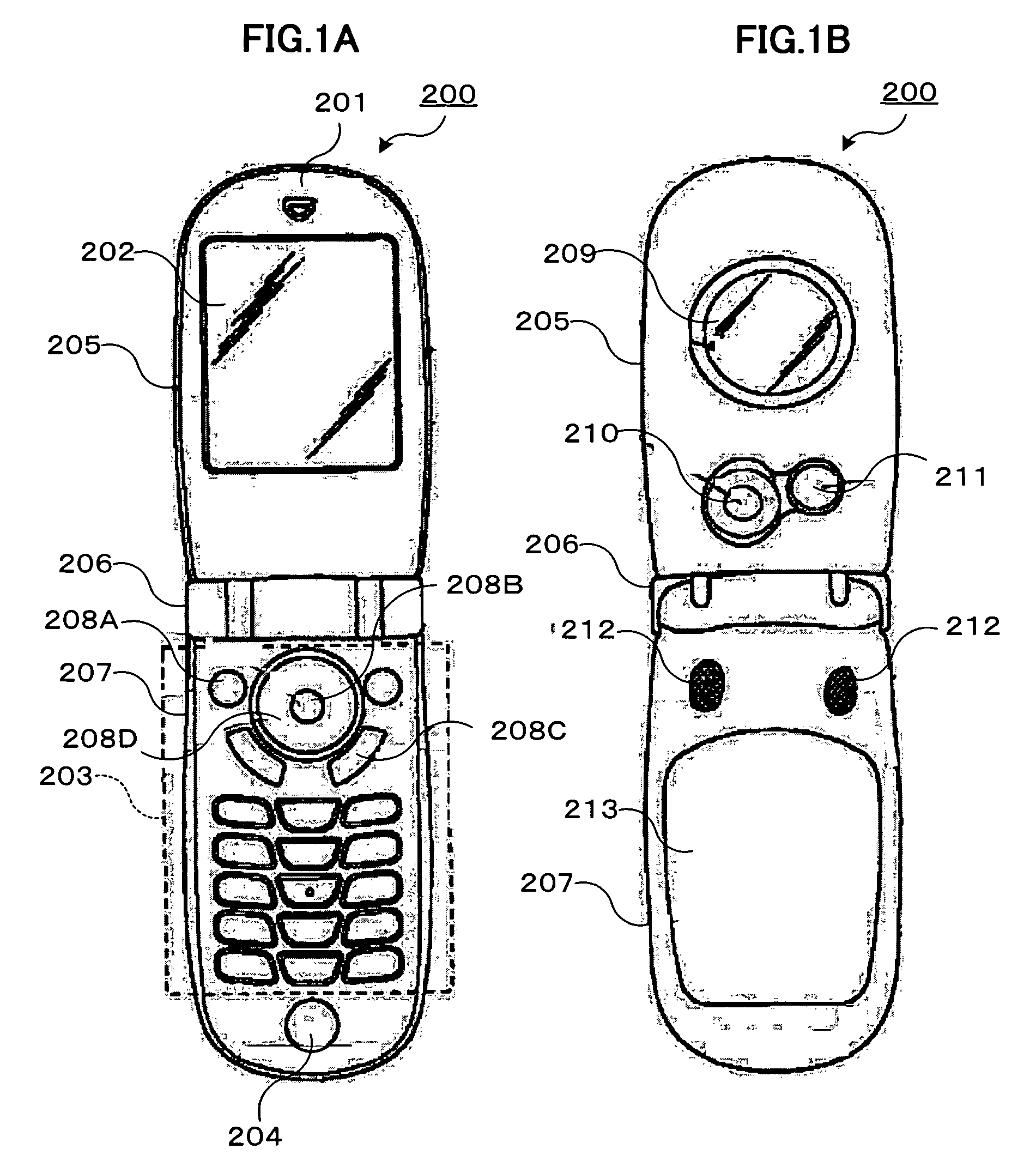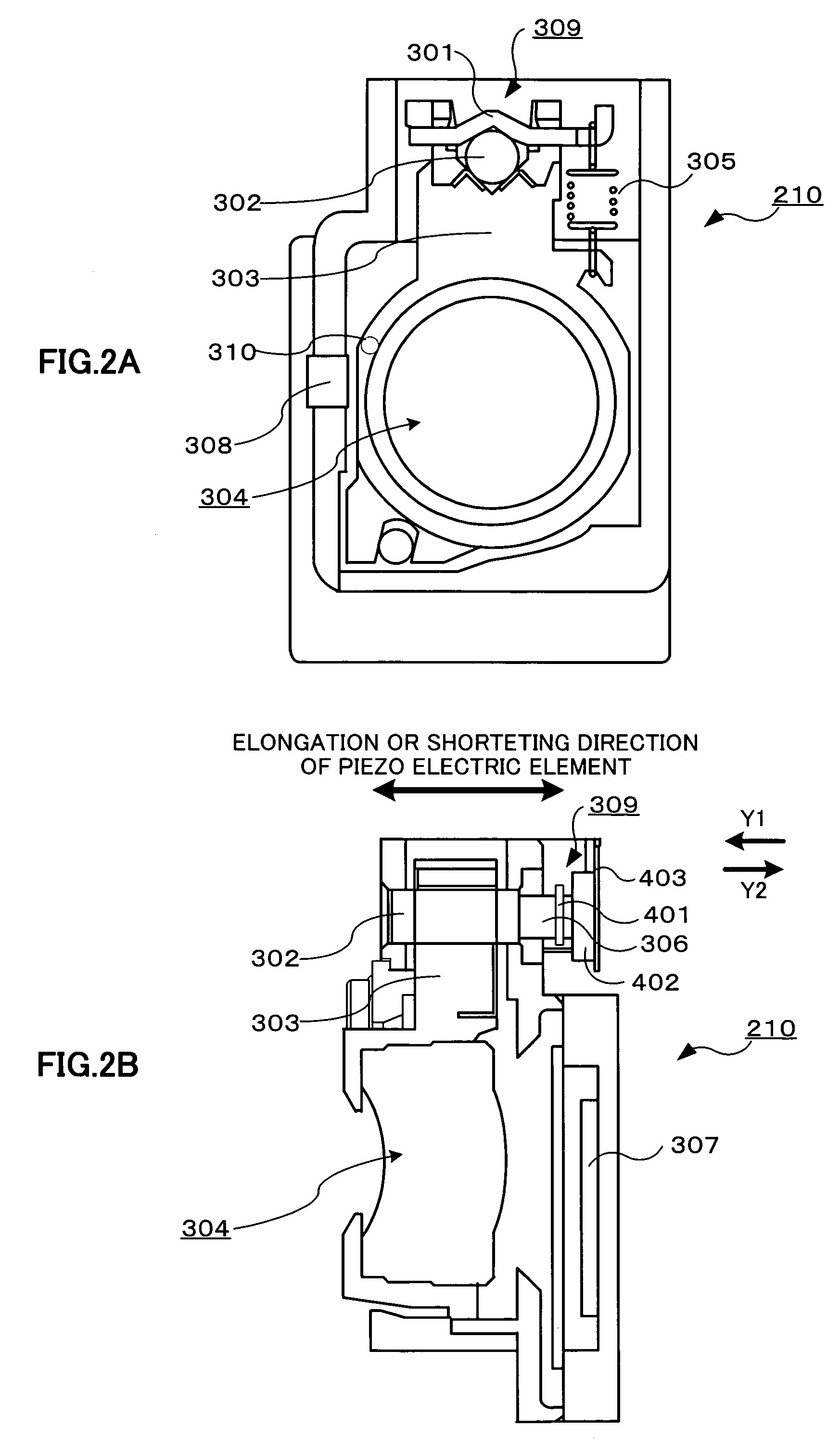Imaging device, lens drive control method and recording medium
a technology of lens drive and control method, which is applied in the direction of printers, instruments, cameras focusing arrangement, etc., can solve the problems of reducing the miniaturization of the camera unit, affecting the quality of the image, so as to reduce the shifting of the zoom magnification and focus, and save space
- Summary
- Abstract
- Description
- Claims
- Application Information
AI Technical Summary
Benefits of technology
Problems solved by technology
Method used
Image
Examples
first embodiment
[0038]Best modes for carrying out the invention will be explained in detail.
[0039]FIGS. 1A and 1B are external views illustrating a camera-mounted cellular phone 200 having a lens control device according to the first embodiment of the invention. FIG. 1A illustrates the front external appearance of the cellular phone 200 with a lid 205 thereof opened, and FIG. 1B illustrates the rear external appearance with the lid 205 opened.
[0040]As illustrated in the figures, the cellular phone 200 is structured in such a way that a hinge unit 206 couples the lid 205 and a main body 207, and is foldable.
[0041]Like general cellular phones, the cellular phone 200 has a speaker 201 for communication, a main display unit 202, a key input unit 203, a microphone 204 for communication, a sub display unit 209, a camera unit 210, a stroboscope LED (Light Emitting Diode) 211, a stereo speaker 212, a rechargeable battery 213, and the like.
[0042]The key input unit 203 has, for example, a camera key 208A for...
second embodiment
[0088]The first embodiment explains the camera unit 210 structured in such a way that the depth of field of the lens 304 is deep and the object is always focused within the movable range of the lens 304, but the invention can be applied to a further high performance camera unit. For example, the invention can be applied to a camera unit which can separately adjust a zoom and a focus.
[0089]In this embodiment, a plurality of lenses 304 each of which can adjust the position thereof are disposed at the position of the lens 304 illustrated in FIG. 2. A vibration actuator and a drive circuit are disposed with respect to each lens, and the position of each lens 304 is detected. By disposing the vibration type actuator and the drive circuit with respect to each lens 304, it is possible to separately control changing of a zoom magnification and adjustment of a focus. Accordingly, as the depth of field of the lenses 304 may not be deep, the camera of the cellular phone 200 can shoot a further...
third embodiment
[0098]Next, the other embodiment of the invention will be explained. In the embodiment, the cellular phone 200 can detect a vibration and a shock originating from opening / closing of the lid 205, and adjust the position of the lens 304. As illustrated in FIG. 9, an opening / closing detection magnet 501 and an opening / closing detection Hall element 502 are respectively embedded in the lid 205, and the main body 207, of the cellular phone 200. A distance between the opening / closing detection magnet 501 and the opening / closing Hall element 502 varies in accordance with opening / closing of the lid 205. A magnetic field intensity detected by the opening / closing detection Hall element 502 changes in accordance with the change of the distance. The controller 108 determines the opened / closed state of the lid 205 of the cellular phone 200 from an output voltage of the opening / closing detection Hall element 502. The cellular phone 200 can image an object by the camera unit 210 with the lid 205 o...
PUM
 Login to View More
Login to View More Abstract
Description
Claims
Application Information
 Login to View More
Login to View More - R&D
- Intellectual Property
- Life Sciences
- Materials
- Tech Scout
- Unparalleled Data Quality
- Higher Quality Content
- 60% Fewer Hallucinations
Browse by: Latest US Patents, China's latest patents, Technical Efficacy Thesaurus, Application Domain, Technology Topic, Popular Technical Reports.
© 2025 PatSnap. All rights reserved.Legal|Privacy policy|Modern Slavery Act Transparency Statement|Sitemap|About US| Contact US: help@patsnap.com



